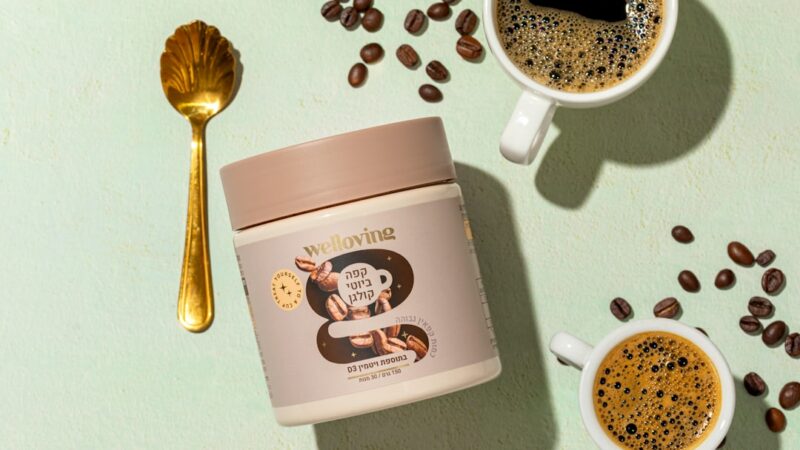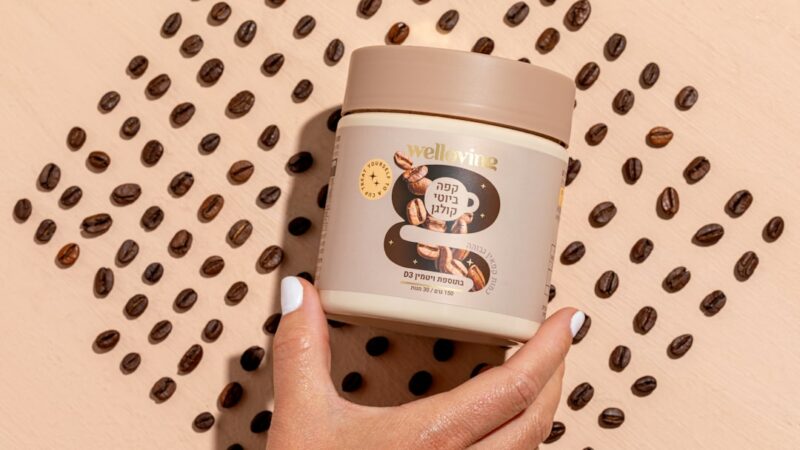“Is Collagen Good for You? Debunking Myths and Revealing Facts”

Collagen is the most abundant protein in our bodies, making up about 30% of our total protein content. It is a structural protein that provides strength and support to various tissues, including the skin, bones, muscles, tendons, and ligaments. Collagen is responsible for maintaining the elasticity and firmness of our skin, as well as the strength and flexibility of our joints and bones.
Collagen is essential for our overall health and well-being. It helps to maintain the integrity of our skin, keeping it smooth and youthful-looking. It also plays a crucial role in the health of our joints, bones, and muscles, providing them with the necessary support and cushioning. Additionally, collagen is important for the health of our hair, nails, and even our digestive system.
There are several sources of collagen in our diet. Animal-based sources include bone broth, chicken skin, fish skin, and gelatin. Plant-based sources include fruits and vegetables that are rich in vitamin C, which is necessary for collagen synthesis in the body.
Table of Contents
Key Takeaways
- Collagen is a protein that is important for our overall health and is found in our skin, joints, bones, and muscles.
- Collagen supplements cannot reverse aging and wrinkles, but they can improve skin elasticity and hydration.
- Collagen is not only good for skin health, but also plays a vital role in joint, bone, and muscle health.
- Plant-based collagen supplements are available and effective, making them accessible to vegetarians and vegans.
- Collagen-rich foods are affordable and widely available, making them a more accessible option than supplements.
Myth #1: Collagen Supplements Can Reverse Aging and Wrinkles
One common myth about collagen is that taking collagen supplements can reverse aging and reduce wrinkles. While it is true that collagen plays a crucial role in maintaining the elasticity and firmness of our skin, there is no scientific evidence to support the claim that collagen supplements can reverse aging or eliminate wrinkles.
Several studies have been conducted to investigate the effects of collagen supplements on skin health. A review published in the Journal of Drugs in Dermatology found that while collagen supplements can improve skin hydration and elasticity, there is no evidence to suggest that they can reverse aging or reduce wrinkles.
It is important to note that maintaining healthy skin goes beyond just taking collagen supplements. A healthy lifestyle that includes a balanced diet, regular exercise, adequate sleep, and proper skincare routine is essential for maintaining youthful-looking skin.
Fact #1: Collagen Supplements Can Improve Skin Elasticity and Hydration
While collagen supplements may not be a magic solution for reversing aging or eliminating wrinkles, there is scientific evidence to support the fact that they can improve skin elasticity and hydration.
Collagen supplements contain hydrolyzed collagen, which is broken down into smaller peptides that are more easily absorbed by the body. These peptides are then used by the body to stimulate collagen production and improve skin health.
A study published in the Journal of Cosmetic Dermatology found that women who took collagen supplements for 8 weeks experienced significant improvements in skin elasticity and hydration compared to those who took a placebo. Another study published in the Journal of Medicinal Food found that collagen supplements can increase skin moisture and reduce the appearance of fine lines and wrinkles.
In addition to improving skin health, collagen supplements have also been shown to have other benefits such as reducing joint pain, promoting muscle recovery, and supporting bone health.
Myth #2: Collagen is Only Good for Skin Health
Another myth about collagen is that it is only beneficial for skin health. While collagen does play a crucial role in maintaining the health and appearance of our skin, it is also important for other parts of our body.
Collagen is a major component of our joints, providing them with the necessary support and cushioning. It helps to maintain the integrity of our bones, keeping them strong and healthy. Collagen is also important for muscle health, as it provides structure and support to our muscles.
Scientific evidence supports the importance of collagen for joint, bone, and muscle health. A study published in the Journal of Aging Clinical and Experimental Research found that collagen supplementation can improve joint pain and mobility in individuals with osteoarthritis. Another study published in the Journal of Cachexia, Sarcopenia and Muscle found that collagen supplementation can improve muscle mass and strength in older adults.
Fact #2: Collagen Plays a Vital Role in Joint, Bone, and Muscle Health
Collagen is not only important for skin health but also plays a vital role in joint, bone, and muscle health. It provides the necessary support and cushioning to our joints, helping to reduce pain and improve mobility. Collagen also helps to maintain the integrity of our bones, keeping them strong and healthy. Additionally, collagen provides structure and support to our muscles, promoting muscle mass and strength.
Scientific evidence supports the benefits of collagen supplements for joint, bone, and muscle health. A study published in the Journal of Nutrition found that collagen supplementation can improve joint pain and function in individuals with osteoarthritis. Another study published in the Journal of the International Society of Sports Nutrition found that collagen supplementation can improve muscle mass and strength in athletes.
In addition to taking collagen supplements, it is important to engage in regular exercise, maintain a healthy diet, and practice good posture to support joint, bone, and muscle health.
Myth #3: Collagen Supplements are Harmful to Vegetarians and Vegans

One common myth about collagen supplements is that they are harmful to vegetarians and vegans because they are derived from animal sources. While it is true that most collagen supplements on the market are derived from animal sources such as bovine or marine collagen, there are plant-based alternatives available.
Collagen is important for vegetarians and vegans because it provides essential amino acids that are necessary for the synthesis of other proteins in the body. Without adequate collagen intake, vegetarians and vegans may be at risk of protein deficiencies.
Fortunately, there are plant-based collagen supplements available in the market that are derived from plant sources such as fruits, vegetables, and algae. These plant-based collagen supplements contain ingredients that promote collagen synthesis in the body.
Fact #3: Plant-Based Collagen Supplements are Available and Effective
Contrary to the myth that collagen supplements are harmful to vegetarians and vegans, there are plant-based collagen supplements available in the market that are both effective and safe.
Plant-based collagen supplements are derived from plant sources such as fruits, vegetables, and algae. These supplements contain ingredients that promote collagen synthesis in the body, providing vegetarians and vegans with the necessary amino acids for protein synthesis.
Scientific evidence supports the effectiveness of plant-based collagen supplements. A study published in the Journal of Cosmetic Dermatology found that a plant-based collagen supplement derived from fruits and vegetables can improve skin elasticity and hydration. Another study published in the Journal of Medicinal Food found that a plant-based collagen supplement derived from algae can increase skin moisture and reduce the appearance of fine lines and wrinkles.
In addition to being effective, plant-based collagen supplements are also safe for vegetarians and vegans to consume.
Myth #4: Collagen Supplements are Expensive and Inaccessible
One common myth about collagen supplements is that they are expensive and inaccessible. While it is true that some collagen supplements can be expensive, there are affordable sources of collagen-rich foods available.
Collagen-rich foods include bone broth, chicken skin, fish skin, and gelatin. These foods are relatively affordable and widely available in most grocery stores. Consuming these foods regularly can help to increase your collagen intake naturally.
In addition to collagen-rich foods, there are also affordable collagen supplements available in the market. These supplements come in various forms such as powders, capsules, and gummies, making them accessible to a wide range of individuals.
Fact #4: Collagen-Rich Foods are Affordable and Widely Available
Contrary to the myth that collagen supplements are expensive and inaccessible, there are affordable sources of collagen-rich foods available that can help to increase your collagen intake naturally.
Collagen-rich foods include bone broth, chicken skin, fish skin, and gelatin. These foods are relatively affordable and widely available in most grocery stores. Consuming these foods regularly can help to support your collagen production and maintain the health of your skin, joints, bones, and muscles.
In addition to collagen-rich foods, there are also affordable collagen supplements available in the market. These supplements come in various forms such as powders, capsules, and gummies, making them accessible to a wide range of individuals.
Is Collagen Good for You? It Depends on Your Health Goals and Lifestyle.
In conclusion, collagen is an important protein that plays a crucial role in our overall health and well-being. It is essential for maintaining the health and appearance of our skin, as well as the strength and flexibility of our joints, bones, and muscles.
While collagen supplements may not be a magic solution for reversing aging or eliminating wrinkles, there is scientific evidence to support their benefits for improving skin elasticity and hydration. Collagen supplements can also support joint, bone, and muscle health.
For vegetarians and vegans, there are plant-based collagen supplements available in the market that are both effective and safe. Additionally, there are affordable sources of collagen-rich foods that can help to increase your collagen intake naturally.
It is important to remember that maintaining a healthy lifestyle that includes a balanced diet, regular exercise, adequate sleep, and proper skincare routine is essential for supporting collagen production and maintaining overall health. Before taking any collagen supplements, it is always recommended to consult with a healthcare professional to determine the best approach for your individual needs.
If you’re interested in learning more about the benefits of collagen, you might also want to check out this informative article on TurnToBeHealthy.com titled “The Best Slow Cooker for 2020: Top 6 Rated.” Slow cookers are not only convenient for preparing delicious meals, but they can also help you make collagen-rich bone broth, which is known for its numerous health benefits. Discover the top-rated slow cookers that can enhance your collagen intake and support your overall well-being. Read more
FAQs
What is collagen?
Collagen is a protein that is naturally found in the body, particularly in the skin, bones, and connective tissues. It provides structure and support to these tissues and helps maintain their elasticity and strength.
What are the benefits of collagen?
Collagen has been shown to have several health benefits, including improving skin health, reducing joint pain and stiffness, promoting muscle mass, and supporting gut health.
Can collagen supplements improve skin health?
Studies have shown that collagen supplements can improve skin elasticity, hydration, and texture. However, the results may vary depending on the type of collagen supplement used and the individual’s skin type.
Can collagen supplements help with joint pain?
Collagen supplements have been shown to reduce joint pain and stiffness in people with osteoarthritis. However, more research is needed to determine the optimal dosage and duration of treatment.
Are there any side effects of taking collagen supplements?
Collagen supplements are generally considered safe and well-tolerated. However, some people may experience mild digestive symptoms such as bloating, diarrhea, or constipation.
Can collagen supplements help with weight loss?
There is no scientific evidence to support the claim that collagen supplements can aid in weight loss. However, collagen supplements may help promote muscle mass, which can indirectly support weight loss efforts.
Are there any vegan sources of collagen?
Collagen is primarily found in animal products such as meat, fish, and bone broth. However, there are some vegan sources of collagen, such as plant-based collagen supplements made from algae or yeast.








